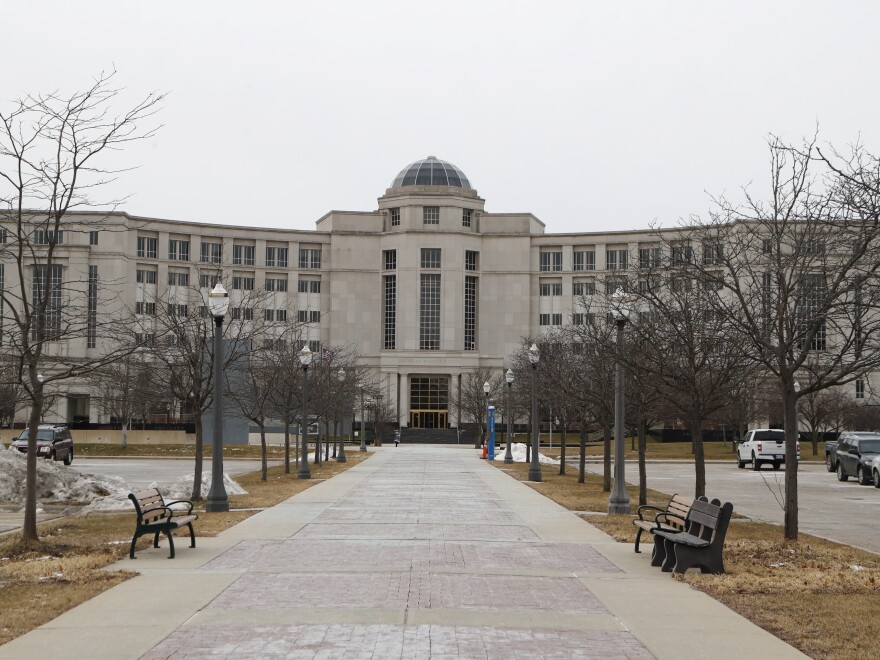Michigan Supreme Court justices are set to hear arguments Thursday morning in a case involving a controversial legislative bait-and-switch tactic known as "adopt-and-amend."
The "adopt" part involves lawmakers taking advantage of a provision in the state constitution that allows the Legislature to adopt ballot initiative language into law before it has a chance to go before voters. The initiative then comes off the ballot, since it no longer needs a vote on Election Day — it's already law.
The "amend" step comes after the election, in the same legislative session, when lawmakers change that new law before it has a chance to take effect.
Strategy used against minimum wage initiative
The case before the court on Thursday dates back to 2018, when Michigan's then-Republican controlled Legislature adopted two ballot measures that would have raised the state's minimum wage and set rates for earning paid sick time.
But right before the governor's office switched to Democratic control following the election, the Legislature gutted both policies.
The two groups behind those ballot initiatives, Mothering Justice and Michigan One Fair Wage, argued that the Legislature's changes violate the Michigan Constitution.
For years, the state has stood behind a 2018 opinion from then-Attorney General Bill Schuette, a Republican, in which he wrote that the adopt and amend tactic was okay.
"[L]egislatively enacted initiated laws are subject to the same processes regarding amendment as legislation drafted by the Legislature. And since nothing in the Michigan Constitution prohibits the Legislature from amending legislation it drafts during the same legislative session in which it was enacted, it follows that the Legislature may do so as well with respect to an enacted initiated law," Schuette wrote in his opinion.
Lawsuits claim violation of state Constitution
Mothering Justice and One Fair Wage eventually sued to have their policies restored to their original form and nullify the former Attorney General's opinion, and in July of 2022, the Michigan Court of Claims declared the adopt-and-amend process unconstitutional.
"To hold otherwise would effectively thwart the power of the People to initiate laws and then vote on those same laws—a power expressly reserved to the people in the Michigan Constitution," Judge Douglas Shapiro wrote in his decision.
His ruling was supposed to take effect in February of this year, after a delay intended to give the state and employers time to adjust. Before that could happen, the lower court ruling was overturned on appeal.
Writing for the three-judge appellate court panel, Judge Christopher Murray reasoned the Legislature's reasoning for subsequently amending the laws after adopting them were irrelevant.
"A constitutional law does not become unconstitutional because it was passed with a bad intent," Murray wrote.
State Supreme Court hears arguments on Thursday
Now, it's up to Michigan's Supreme Court to decide the future of adopt-and-amend, the state's minimum wage, and sick leave accrual.
Under the current version of state's minimum wage law, workers are set to make $10.33 an hour starting next year, with tipped workers earning $3.93 an hour.
If the law were to be restored to its original form, employees would see an increase to over $13 an hour, regardless of tipped status.
For sick leave, employees would earn at least one hour of paid sick time for every 30 hours worked, up 40 paid hours in a year for small business employees and 72 hours per year for all other employees.
The state Supreme Court will hear oral arguments on Thursday.
Colin Jackson is a reporter for the Michigan Public Radio Network.
Copyright 2023 Michigan Radio

